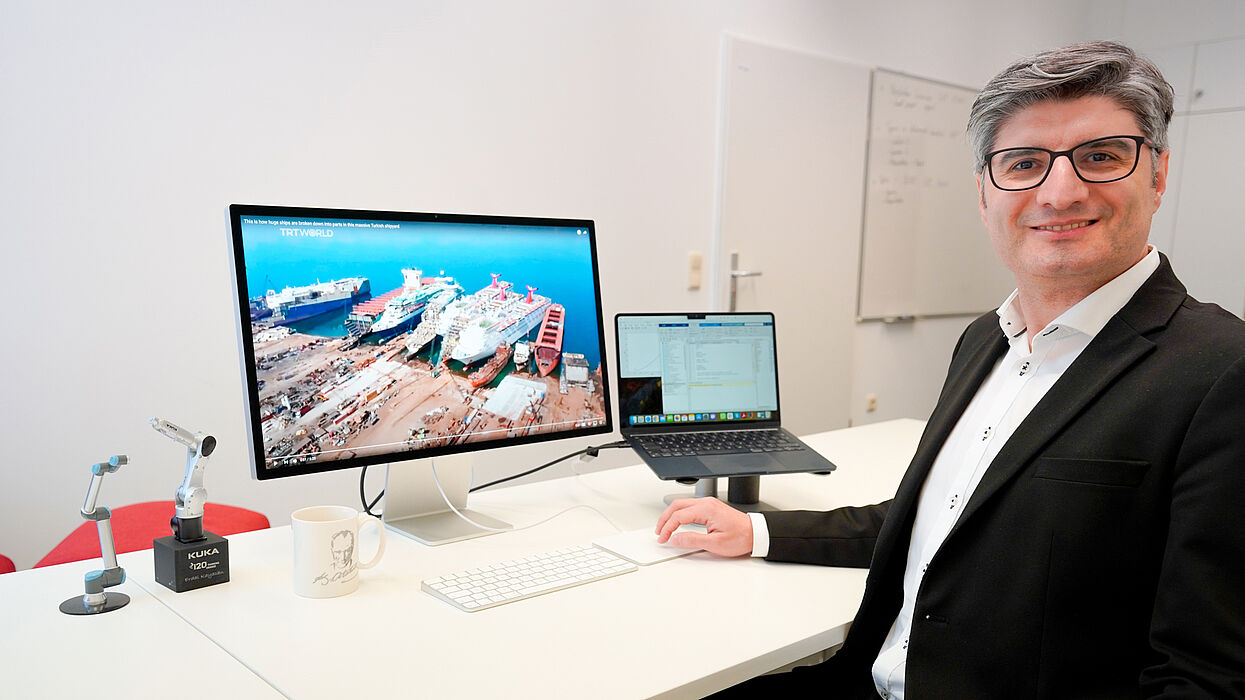Researchers at Paderborn University are involved in a pioneering Europe-wide project seeking to improve safety, health and environmental standards in ship recycling. To achieve this, partners from science and industry are taking a new approach using robotics and AI systems. The project was launched in January for a period of four years, and has received a total of nearly eight million euros of funding from the European Union (EU), of which 950,000 euros are going to Paderborn research at the Department of Electrical Engineering and Information Technology.
Hazardous substances and working conditions
Ships are made from tough materials that in some cases are recyclable, which is why decommissioned models are often dismantled in what are known as "shipbreaking yards" and the individual parts are processed accordingly. Handling harmful substances (which need to be properly identified, located, removed and disposed of) is therefore a common occurrence. "These working conditions make ship recycling one of the most dangerous professions in the world", explains Professor Erdal Kayacan, head of Paderborn University’s "Automatic Control Group", which is involved in the project.
The aim of the "Safe, Healthy and Environmental Ship Recycling" project (SHEREC) is to improve health and safety conditions in shipbreaking yards whilst also reducing environmental pollution with toxic substances. Drone inspections, automated development of ship recycling plans, and robot-assisted cutting processes are also designed to minimise costs. "The ship recycling industry is still heavily dominated by manual labour. Our project aims to promote the use of new technologies and speed up workflows", Kayacan notes.
Paderborn’s robotics expertise in demand
Paderborn’s researchers are using their expertise to help develop a compact unmanned aerial vehicle optimised for inspecting ship interiors. Multimodal and chemical sensors are among the equipment being fitted to allow drones to be deployed in extreme working conditions, e.g. in cramped spaces with obstacles and poor lighting. They use modern algorithms based on event-based camera data to precisely map the surrounding area. "The robotisation of ship recycling offers both economic and environmental benefits for Europe", is Kayacan’s summary.
As well as Paderborn University, the research consortium also includes the Aristotle University of Thessaloniki (Greece), LUT University (Finland), the Norwegian University of Science and Technology (Norway), RWTH Aachen (Germany), the Polytechnic University of Madrid (Spain), the Alternative Energies and Atomic Energy Commission (France), the research organisation SINTEF (Norway), the companies Cliin Robotics (Denmark), Danieli Telerobot (Italy), Litehauz ApS (Denmark), Avsar Ship Recycling (Turkey), Leviathan GmbH (Germany) and Hempel (Denmark), and the NGO Shipbreaking Platform (Belgium). The consortium is headed by the Hidropar Motion Control Technology Center (Turkey).

